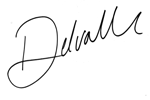I’ve been reading headlines I thought I’d never read again.
From Bloomberg: “Even the Cheapest Homes Are Too Expensive for Millennials.”
And one MarketWatch headline this week reads, “Why Millennials Should Buy a Home Today.”
Notice the trend? Both are about the housing market. And believe me, it is booming. Especially on the West Coast.
In Portland, Oregon, the influx of “hipsters” has pushed rental vacancy rates down to 3.4%. That helped rents increase at the sixth-fastest rate in the nation.
A friend even recently told me, “Welcome to San Francisco,” when describing Portland’s housing market. (I have mixed emotions about that, considering I live in the Portland-metro area.)
It’s not just Portland that’s booming.
Housing has been rallying along the entire West Coast (Seattle is said to have the hottest market in the U.S.). You can even include some big East Coast cities (like Charlotte and Brooklyn), too.
While I hate high prices, I love that the housing market is actually doing well. You see, a healthy housing market is typically what propels our economy forward.
Think about it: Homes are the most expensive things most people purchase.
But as you know, buying a house doesn’t consist of a one-time expenditure. You have to rent a moving truck and hire movers … you have to clean the previous place you lived in … and oftentimes you have to buy new appliances and spend lots of money on upgrades and repairs to the new home.
A booming housing market, therefore, supports a whole host of industries and services in the economy.
That’s why a healthy housing market is a good thing.
And considering what’s happening around the world, the housing market may be the sole thing supporting our economy in the U.S.
China recently announced that its economy is growing at a 7.2% rate. That seems like a lot, and for the U.S. it would be, but for China (which for years enjoyed double-digit GDP growth), that’s awful.
Of course, there are those who think this number overstates what’s really going on in China. Diana Choyleva of macroeconomic forecasting consultancy Lombard Street Research thinks something fishy is going on:
China’s real GDP data came in worse than we expected, raising the risk of a sharper downturn next year. Our preliminary estimates show growth at an annualized rate of just 2.9% in Q3, way lower than the official 7.2%. Year-on-year growth was 3.1% (official 6.9%). The Q3 number changed the seasonally adjusted profile of our quarterly annualized estimate, lowering it to an average of just 3.5% so far this year…
Whether Beijing will be able to stabilize growth in the next couple of quarters depends on American and European consumers starting to spend more of their real income gains.
That last sentence is key.
Do you really believe that Americans are going to have enough ample income to support the Chinese economy? I think last week’s missive on Wal-Mart tells you all you need to know.
And Europe is in even worse condition. The EU is in the throes of a long-term economic deflation that has been ongoing since 2009. No matter how much money the European Central Bank has printed, deflation persists.
And that little problem with Volkswagen cheating on emissions testing in the EU and the U.S. could be enough to throw the German economy into a recession. What most people don’t realize is that VW is Germany’s largest private employer and Europe’s biggest carmaker.
Even Martin Schulz, member of Germany’s Social Democrats and head of the European Parliament, said this VW scandal “will be a heavy blow for the German economy as a whole.”
It’s hard to look at what’s happening around the world and feel comfortable. We’re witnessing the start of the unraveling of the Chinese mega-bubble. And while the U.S. won’t be the biggest victim in this economic catastrophe, we will certainly feel the pain.
So we’re going to continue holding on to some of our hedges (you can see the portfolio here).
And if there are any big changes, we’ll let you know as soon as possible.
Have a great weekend.
Take care,

Charles Del Valle
Editor, Strategic Investment
